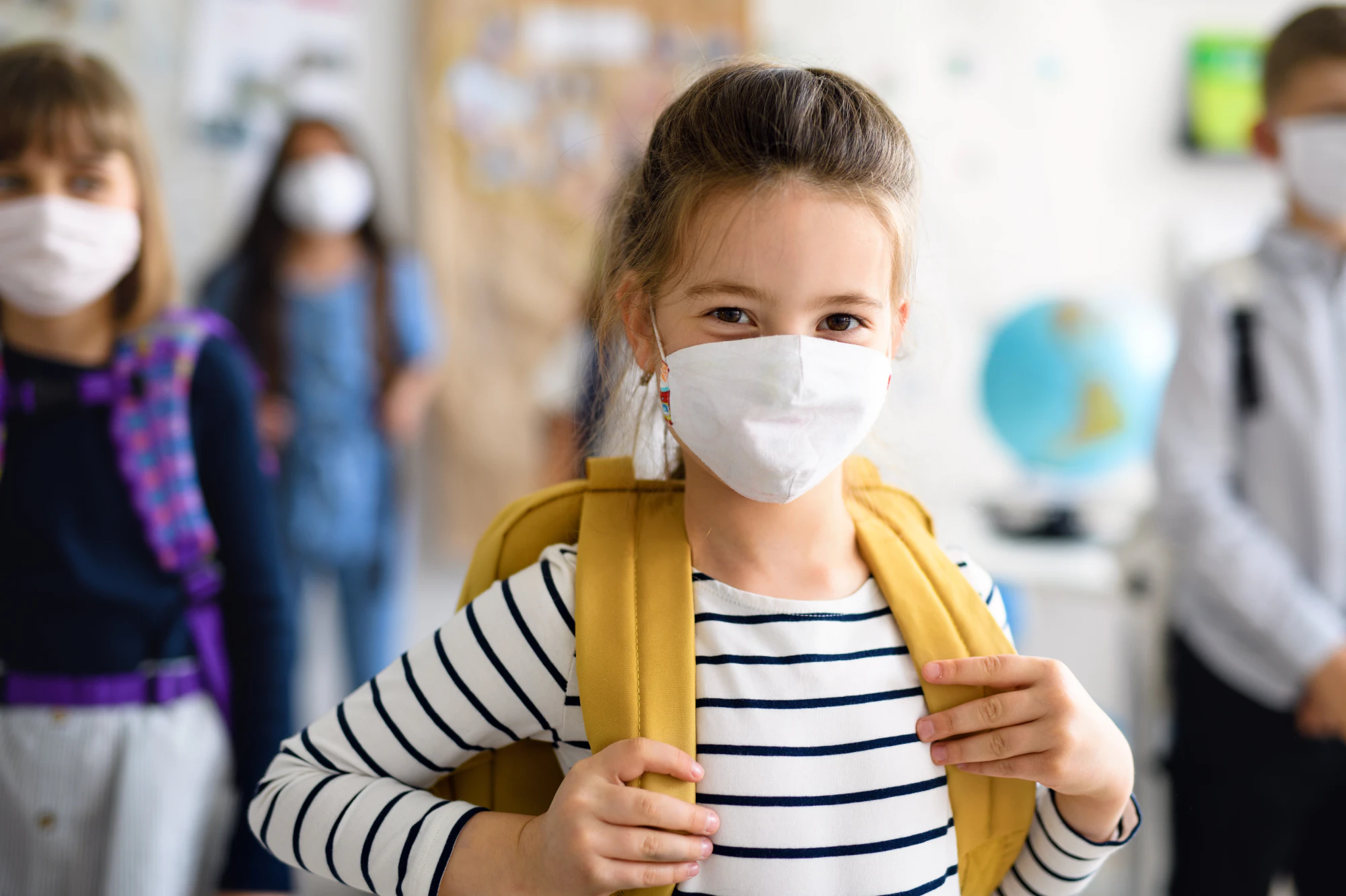8 Back to School Health Tips for Parents
Health & Safety Tips
•
Aug 9, 2022

Knowing a few back to school health tips can help both parents and students better prepare for a healthy and successful school year. These health tips for school students are preventative measures and good habits to form to ensure that your child has the foundation that they need to succeed.
Showing your child how to treat their body and their mind well will positively affect not only their academic performance but their health and relationships for a long time to come.
Tip #1: Provide or purchase healthy meals
One of the simplest, and yet most often overlooked, tips for back to school health involves healthy eating. Eating well is especially important for children, as childhood obesity puts children at risk for a number of lifelong health complications, including high blood pressure, high cholesterol, and type 2 diabetes.
Children, who are often notoriously picky eaters, are not concerned with the side effects of too much sugar, but their parents should be. Try to be a good influence on their diet, but remember that Rome wasn’t built in a day, and limiting sugary drinks and juices can take time for them to accept and learn.
Tip #2: Make sure your child is getting enough sleep
Studies have shown that children who regularly get quality sleep pay better attention, have fewer behavioral problems, absorb information more quickly, and are in overall better health. Remember, children need more sleep than adults. Children aged 6-12 should be getting anywhere from 9-12 hours of sleep, and older kids aged 13-18 should aim for 8-10 hours of shuteye.
While getting the kids to go to bed on time can be a challenge, simple things like limiting sugar intake and ensuring they get enough physical activity can be key.
Tip #3: Make sure that they are staying hydrated
The benefits of hydration, much like healthy eating, are numerous. Staying hydrated is a building block of a healthy lifestyle — it improves brain function, digestion, and energy levels.
Buying your child a refillable water bottle will make it easier for them to stay hydrated, as well as help limit their consumption of soda and juice.
Continue reading: What to do if you’re dehydrated
Tip #4: Keep a close eye on allergies
Allergies are disruptive and inconvenient. Even mild seasonal allergies can cause headaches, sneezing, and fatigue that will get in the way of your child’s school day — but severe allergies can keep them from school for extended periods and even put their lives in danger.
Know when to go to the hospital for an allergic reaction, and talk to your doctor about managing your child’s allergies to keep them safe and focused.
Tip #5: Reinforce good hygiene
The reality is, kids aren’t always the best at washing their hands. And although hand washing won’t change the fact that schools can be breeding grounds for bacteria, it can cut down on your child’s exposure to germs.
Talk to your kids about singing the alphabet or “Happy Birthday” while washing their hands, and reinforce that handwashing isn’t just a back to school health tip, but a lifelong healthy habit. You can also talk to your doctor about flu shots for children, as this is another way to prevent your child from getting preventable illnesses.
Tip #6: Manage their load (literally)
Nothing screams back-to-school season more than sending your child to school with a full backpack on the first day. While this may seem necessary, carrying a heavy backpack around can have long-term effects on your child’s back, shoulders, posture, and spinal health. If your child expresses that they are experiencing any type of back pain, try buying them a comfortable backpack and managing the weight of the books they carry.
Tip #7: Check for lice
An unpleasant part of back to school preparedness is checking for head lice. Head lice are more common in children between the ages of 3 and 11, who contract them from head-to-head contact during playtime. Check your children for lice weekly, at least through elementary school, to ensure that their scalps are clean and lice-free. If you do see lice, call your pediatrician to ask for advice on what medications or home remedies to use when dealing with head lice.
Tip #8: Mental health
Finally, school can be a tough place for kids, and back to school mental health is just as important as physical health for long-term success and happiness. Social anxiety and fear of fitting in, combined with academic stress and bullying, create an environment that requires surprising maturity to navigate. Making sure your children feel comfortable and are comfortable communicating about their problems at school can go a long way.
Talk to your children about how they’re doing. If they are struggling with acute or long-lasting anxiety attacks, consider finding someone for them to talk to. Even adults can’t cope with everything on their own, and shouldn’t try to, so you shouldn’t expect it from your child.
Bonus back to school health tip for parents: know where your closest Complete Care emergency room is!
You can relax knowing that you’ve got some back to school health tips to get your children’s school year started off right. You can’t always protect your child while they’re in the classroom or on the playground, but supporting their health is the best way to make sure that they’re taken care of for a long time to come.
Our expert healthcare providers are fully equipped to give you the help that you need for a variety of emergency situations. If you or your child do have an emergency situation, you can always come into one of Complete Care’s freestanding, 24/7 emergency rooms all over Texas or in Colorado Springs. We’re ready to take Complete Care of you.
More Helpful Articles by Complete Care:
